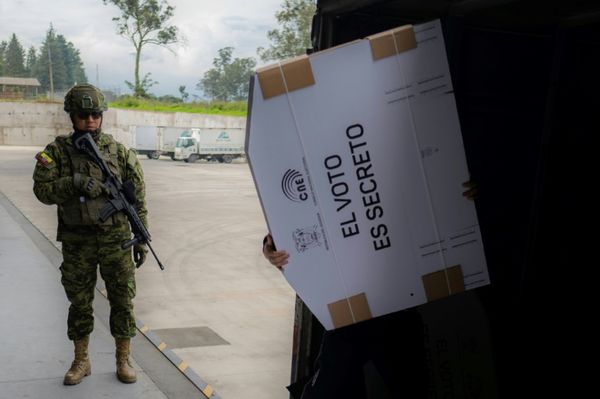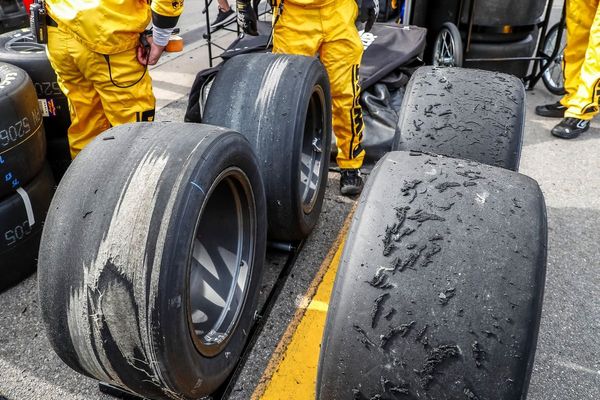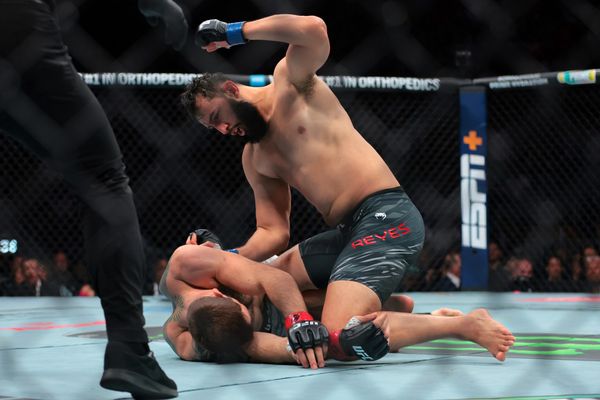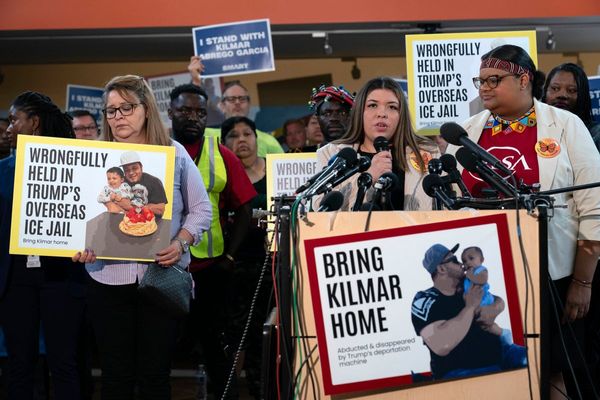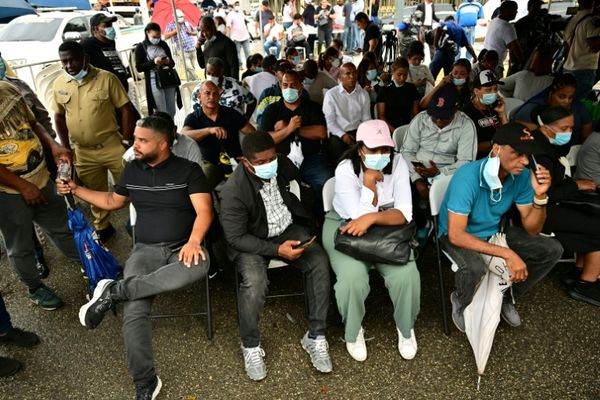PHILADELPHIA — The most dysfunctional team in the NFL is trading the worst owner of the modern era for one of the best in the NBA and NHL.
An NBA source confirmed Thursday that longtime D.C. football fan Josh Harris and his group of investors, which includes Magic Johnson, have agreed to buy the Washington Commanders from Daniel Snyder for about $6 billion. Snyder was pressured to sell the team by his peers. He and the franchise recently have faced multiple investigations regarding improper finances, witness intimidation, and fostering a toxic workplace environment.
Harris has no such baggage.
Harris owns significant portions of the 76ers and the New Jersey Devils and smaller stakes in the Pittsburgh Steelers and Crystal Palace of the Premier League. He would have to sell his shares of the Steelers to buy the Commanders. The deal won’t be done for weeks, and is pending NFL owners’ two-thirds approval, but the owners wanted Snyder gone, so don’t expect this deal to drag.
So, what sort of owner will Commanders fans be getting? After more than a decade of partnering with David Blitzer to run the Sixers, Devils, and the Devils’ arena, the Prudential Center, this is what Harris has shown us.
You’re not getting Jeffrey Lurie
Almost every morning of the football season, the Eagles owner parks his sports car in the first spot outside the NovaCare Complex and reports for work. He oversees everything. He’s interested in game plans and draft strategies. He follows free agents. He attends preseason workouts, training-camp sessions, in-season practices, and, of course, every single game. He mingles with the players in the locker room after games.
Harris will not be that guy. He’s a private equity mogul with his fingers in more pies than Little Jack Horner. He won’t be flying in from New York to land his chopper at the OrthoVirginia Training Center in Ashburn to watch tape with his general manager; for that matter, considering his other concerns, he’ll probably miss a few games. That’s OK.
Loosen the purse strings
Harris will seek to hire the best football people available, give them the PIN to his ATM card, and then leave them alone. That’s what he did with Sam Hinkie, for better or worse, and Hinkie unleashed The Process, essentially buying draft picks and setting up the Sixers for a long-term relevance. That meant an elite training facility in Camden, N.J., top-notch sports science and medical staffs, and as many as 13 analytics professionals at one time.
Harris gave carte blanche to Bryan Colangelo, too, and now he’s done it with Daryl Morey; again, for better or worse. The same is true in Newark, N.J., where GM Tom Fitzgerald and coach Lindy Ruff have the Devils in the postseason after missing the playoffs the last four years.
Make big moves
Snyder wasn’t hesitant to go for broke — he took the plunge on recycling Joe Gibbs as a coach and Carson Wentz as a quarterback — and, in that respect, Harris will be bold. He traded for Andrew Bynum, traded up to draft Markelle Fultz, traded for Jimmy Butler and Tobias Harris, and traded for James Harden.
Harris likely will be far too involved with the team’s stars, which undercut Brett Brown’s authority. He has curtailed this sort of activity, but if hanging out with Joel Embiid and Ben Simmons was fun, hanging out with Chase Young and Montez Sweat will be positively intoxicating. His owner brethren will frown on this; unlike the NBA, in the NFL, the players are, in Southern parlance, the help.
Harris also hired Doc Rivers in 2020 for $40 million over five years, then hired Morey a month later for more than $50 million over five years. An NFL source said that, while in negotiations to buy the team, Harris’ group courted former Saints coach Sean Payton before Payton signed with the Broncos. Payton won the Super Bowl after the 2009 season, so there’s little wonder he attracted Harris. Doc hadn’t won anything since the 2008 NBA title. Morey has never won a title.
But they’re big names.
Build for the future
Because of his business background, most people thought Harris was going to buy the Sixers then either sell them or move them to New Jersey. Neither happened. In fact, he’s pushing to build a downtown arena. He has, in general, been a good steward.
Harris bought the 76ers in 2011, immediately shook up the team for 2012 by adding Bynum and subtracting four first-round assets, then stepped back and rebuilt everything starting in 2013. Harris bought the Devils and the Prudential Center two years later, shifted tacks a couple of times, but has both entities on solid ground now. He considered bidding on the Broncos last year.
He’s a private-equity investor. He specializes in redefining corporations. In the real world, that means layoffs, consolidation, and, sometimes, resale.
In the circus world of professional sports, for Harris, that means often painful processes that sweep out rotted foundations, rebuilding from the ground up, and rebranding what was broken. If that happens in Washington, the dog days of Dan Snyder will quickly be forgotten.
He certainly isn’t buying sports teams to resell them — especially not the Commanders. He was a huge fan of theirs growing up in Chevy Chase, Md.
Worn-out lieutenants
Harris has a battalion of polished executives working for Harris Blitzer Sports & Entertainment, the property management company he and Blitzer own. Too often he has worked those executives too hard, and it showed. Too often his leaders in Philadelphia have had to drive to Newark two or three times per week, no one more so than former Sixers and Devils CEO Scott O’Neil. With the bottom line in minds, too often Harris expected his best people to be as work-obsessed as he is, only without the helicopter and jet.
Tad Brown, O’Neil’s successor, inherited similar expectations, but he’s created a slightly less exhausting environment. HSBE execs now act more as macro-managers, in part thanks to the tele-meeting software made commonplace during the COVID-19 pandemic.
Will Harris learn from his mistakes? We’ll see.
As of now, HSBE execs will help as the Commanders transition from the sort of organization Snyder ran to the sort of organization Harris prefers.
As in, functional.
Real diversity and investment
Gone is the man who argued that “Redskins” was not a racist slur. Here is the man who had more women in his front office than any team in the big four sports leagues six years ago.
The Commanders’ offices will be filled with diverse, loud voices. Harris’ companies are obsessed with diversity, equity, and inclusion.
Harris also will try to leave D.C. better than when he found it. That’s what HBSE has tried to do in Philadelphia, with, among other initiatives, the team’s youth foundation and the “Buy Black” business partnerships.
Those programs haven’t changed the world, but they’re something.
